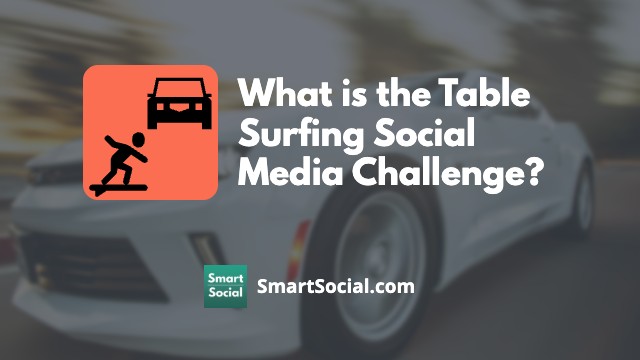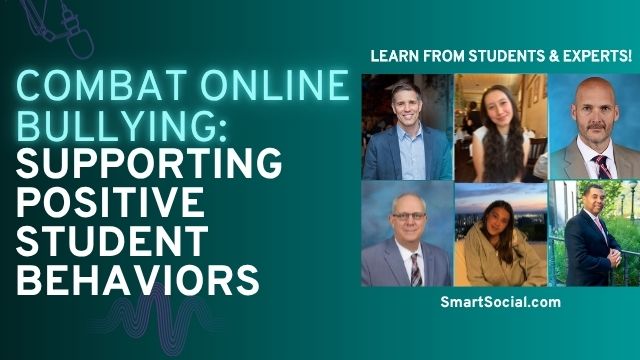The Risks of Venmo for Students
Green Zone App
(Click here to learn more)
Dangerous Social media challenge
(Click here to learn more)
Red Zone App
(Click here to learn more)
Gray Zone App
(Click here to learn more)
Using apps to manage money and pay friends or a business easily can be a great financial education for students. With the convenience of making payments from your phone, comes risk to your privacy. Students using the app must be aware of the dangers and how to be aware of the privacy of their transactions.
Parent & educator training video
Listen to this app guide:
What is the Venmo app?
- Venmo is an app that allows users to pay each other through the app using a connected bank account or with the specific Venmo Debit Card
- While it may not be considered a traditional social media app, Venmo says they provide
“Social payments between friends...where money enhances friendships rather than complicating them.” Venmo
- In technical terms, Venmo is a peer-to-peer payment (P2P) system that allows users to transfer money virtually
- Some parents find it helpful to teach financial lessons
Dangers of “social payments” in Venmo for young students
- Transactions may be seen in their public profile on Venmo and/or on their Facebook if they have given the apps permission to connect--including physical locations
- Other users can “tag” users in a transaction note or comment, that could be seen in any profile of others tagged who do not make their profiles private (Venmo)
- Users don’t have to be connected with other users to pay them on the app and even Venmo recommends sending payment only to people you know (not strangers)
- Venmo asks for access to your contacts when signing up, which has been made public for anyone to see, whether you interact with them on Venmo or not
- The social aspect of Venmo allows drug dealers and predators to connect with students based on hashtags or emojis they share
Where is Venmo available?
Apple App Store Rating: 4+
Google Play: E (Everyone)
App Website: venmo.com
Owned By: PayPal
Based In: New York
“The Services are not directed to children under the age of 13.”
Venmo in the news

The Venmo community has grown to more than 70 million customers, so this change allows customers to connect and share meaningful moments and experiences with the people who matter most. - The Verge

In addition to publicly posting transactions, Venmo lets users import their contacts as "friends." The first screen users see is a feed of their friends' purchases. (Friends lists can't be hidden, and the only way to hide your connections is to delete your friends.)- cnet

...A swindler tells the user they need to cough up a refundable fee to activate their service. The money is requested via PayPal, Zelle, Venmo, or even gift cards. Of course, none of the money is refunded. - The Kim Komando Show

More than ever, people feel comfortable sharing the details of their finances… We've been enticed to share more and more details, and we do. But while more transparency around money is generally a good thing, the act of turning our transactions and personal finance into theater could have damaging consequences. - cnet

One scam going around is sending a user a text message or phone call claiming to be from Venmo and saying someone is trying to use your account. They’ll want to send a text message and ask that you reply to it to change your password. Once that happens, they’ll be able to access your Venmo account. A Venmo user in Virginia lost over $2,000 in this phishing scheme.- Alabama's News Network
Is Venmo a safe app for students?
- Venmo can be a good option for teaching financial responsibility without having to keep track of cash
- Venmo did remove its global social feed, limiting how much information other users can see
- If students are aware of the privacy settings on their transactions and the consequences of strangers finding their physical location or bullying them based on their Venmo transactions, the app can be safe
- Scammers on social media or email can trick users into paying a ransom via Venmo when they know the user has an account
- Parents and students should have specific discussions and agreements of how the student’s Venmo is to be used, what bank account is attached to the student’s profile, and who is responsible for the mismanagement of the money if it happens
What can parents and students do to stay safe on Venmo?
- Students should share their Venmo (and all social media) passwords with their parents for monitoring
- We recommend NOT allowing Venmo and Facebook to connect to help reduce the social connections, especially in connection to money
- Student’s Default Privacy Setting should be set to Private AND users should ensure each transaction’s “Who can see this” is set to Private so the sender and recipient only see the transaction
- Students should encourage their friends to not share their transactions publicly or tag them
- Families should talk about what potential scammers look or sound like and students should always consult with their parents before paying any type of bribe money someone is requesting
- Financial experts recommend anyone not keeping large amounts of money in the Venmo “wallet” and using a debit or credit card with extra payment protections, even though there may be additional fees
- Users should practice safe password practices, like not repeating the same password among multiple log-ins or sharing the password with friends
Conclusion
Venmo is a very popular social app that makes going out with friends and splitting a bill easier than ever so the fun isn’t interrupted with awkward money conversations. Students can build financial skills while under the watch and support of their parents using apps like Venmo. However, if not aware of the social connections the app software creates, students can lose their privacy online and find themselves in financial troubles at any age.
Protect your family and enter for a chance to win cool prizes
Become a member or log in to learn more on this topic
Protect your family and enter for a chance to win cool prizes

., start learning from this page to earn points!*
Hello, I'm Josh, the founder of SmartSocial.com.
Don't leave this page until you fill out our feedback form that will appear after you learn from the resources...
Become a Very Informed Parent (VIP) to get our social media suggestions in your email every Tuesday & Thursday.



Hello, I'm Josh, the founder of SmartSocial.com. Protect your family by taking my 1 minute quiz
This quiz will help you understand how safe your family is


Schools & Districts: Partner with us to protect your community online
Our remote presentations (and website) teach over a million parents and students each year how to be safe so they can shine online. We teach students how their accounts can be used to create a portfolio of positive accomplishments that impress colleges and employers.


Join Our Smart Social Podcast
each week on iTunes
With over 500 episodes, Josh Ochs interviews psychologists, therapists, counselors, teachers, and parents while showing you how to navigate social media to someday shine online.
Listen on:




.jpg)
.jpg)
.jpg)


